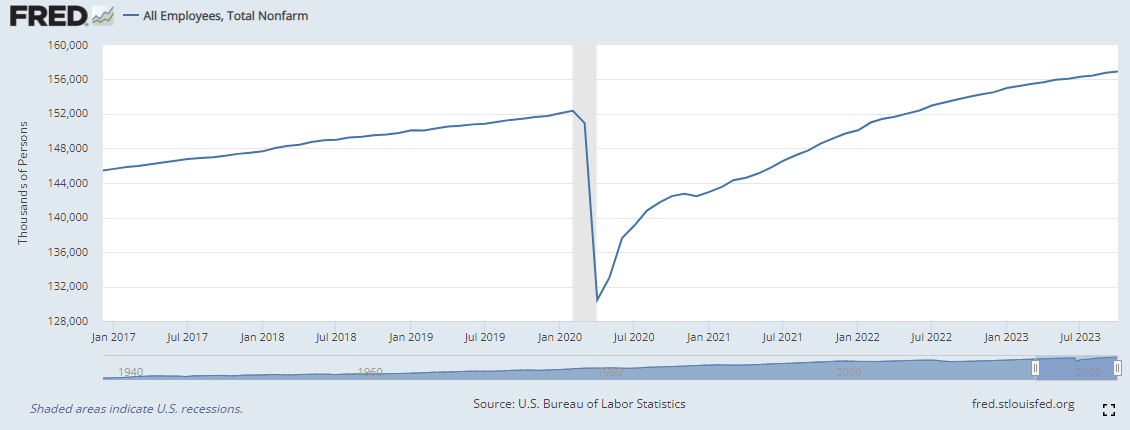Random Walk at Night: A productivity boom?
Plus a check on the Almighty Consumer
If we are adding ever-more workers, then why did the data show we’re doing less work? Is it bad or good? What does the Almighty Consumer see?
Everything reads better in your browser or in the app. The footnotes especially, and Random Walk is really leaning into the footnotes. Plus, if you have the app, you can set delivery to “app only” and then my daily barrage will feel less like a barrage. Unfortunately, substack does not yet have a “Weekly Digest” option, but I’m hectoring them aplenty.
If this email was forwarded to you, please click the shiny blue button:Random Walk at Night
A productivity boom!
Last week there was a lot of excitement over a “productivity boom.” If you look at total output and divide it by total hours worked, you get a measure of “labor productivity.”
Since output grew ~5.9% and hours worked grew ~1.1%, then we’ve gotten more productive to the tune of 4.7% (QoQ):
Productivity is good. Doing more with the same (or less).
Now, one thing you’ll notice is that there is some sensitivity to the denominator.
For example, right at the beginning of the pandemic in 2020 productivity jumped. Did we actually get a lot more productive? No, of course not. What happened is that lots of people lost their jobs, but measured output stayed relatively high, resulting in the appearance of a big productivity boost.
The point is that numbers can be deceiving.
A productivity puzzle?
But that’s not the puzzle part. Here’s the puzzle part.
I was curious about the denominator changes in this case, and got to poking around with some of the aggregate numbers, and discovered something weird.
Total employees has been steadily growing:
But total # of hours worked has rolled over:
So, we’re adding employees, but reducing the total number of hours worked. Does that make sense?
No. It doesn’t make sense. If you’re adding workers, you should be adding working hours, even just a few.






